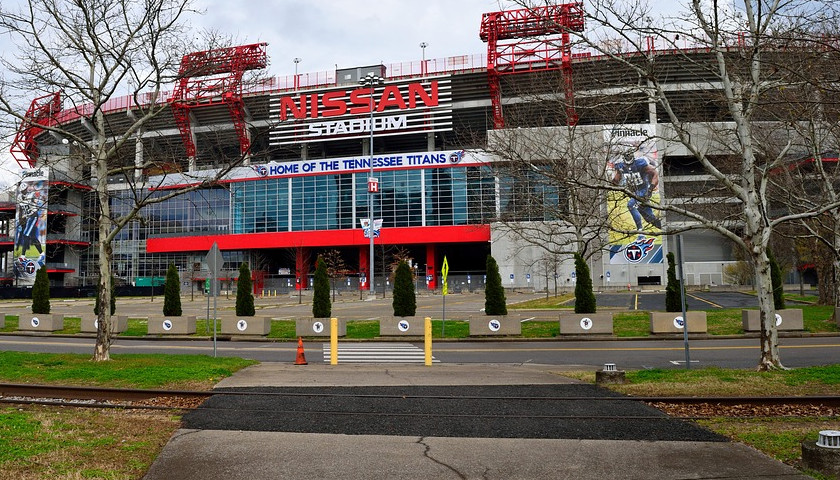by Jon Styf
A lease agreement between the Tennessee Titans and the limited liability Cumberland Stadium LP, calls for the Titans to be provided “a modern, first class, open air, stadium designed primarily for football, with a grass playing surface, to be located on the Stadium Site,” according to a copy of the lease acquired by The Center Square.
Cumberland Stadium is an operator that works for the Metro Nashville Sports Authority at the stadium.
The lease definition has been at the forefront of the Titans’ claim that Nashville is obligated to pay $1.839 billion currently toward stadium improvements because of the lease. The Titans are pushing for a new $2.2 billion stadium that would include $1.5 billion in public funding.
The lease, however, names comparable facilities but uses that term only as it relates to personnel and services like ticket sales and gift shops at the stadium. The term is not used as it applies to the condition of the entire stadium.
The lease was located after a public records request was shared with The Center Square from Justin Hayes, a communications specialist and a concerned Nashville taxpayer.
This week, Metro Nashville’s council voted to include a $200,000 stadium study on its lease obligations in its budget.
The lease goes on to say “The stadium will provide chair-back seating, luxury uites and premium club seating with a manifested capacity of at least 65,000 and not more than 70,000 permanent seats, and shall have the ability to have additional temporary seats. The stadium will be totally equipped, with all incidentals so as to be ready for game play.”
During Nihill’s May presentation to the finance committee of the Metro Nashville Sports Authority, Nihill gave a renovation estimate $945 million for near-term stadium renovations and $894 million for maintenance and upgrades between 2026 and 2039 if the Titans were to use their option to renew the Nissan Stadium lease.
Nihill said that he believed the lease listed comparable NFL stadiums that Nissan Stadium must match.
The lease defines “comparable facilities” as first-class sporting and entertainment venues of similar age, built within 10 years of each side of Nissan Stadium that include Carolinas Stadium in Charlotte, Jacksonville Stadium, Joe Robbie Stadium in Miami, Coors Field in Denver, Jacobs Field in Cleveland, The Ballpark at Arlington, Oriole Park at Camden Yards in Baltimore, Comiskey Park in Chicago, Olympic Stadium in Atlanta and BancOne Stadium in Phoenix.
The only time “comparable facilities” appears in the lease outside the definition, however, is when it stipulates that “Cumberland shall furnish at the Facilities all personnel and services customarily furnished by stadium operators at Comparable Facilities, including, without limitation, personnel and services related to parking, ticket taking and sales, security, concessions, gift shops, program sales, janitorial services and similar functions and duties.”
Economist J.C. Bradbury of Kennesaw State University in Georgia said previously that he believes the city could challenge the first-class stipulation.
“The notion that first class is some objective standard that Nissan can’t come close to meeting with more modest changes is an important aspect here,” Bradbury tweeted. “Municipal leaders could clearly push back on this and win in court.”
On Friday he added that “Yeah, I think the case that Nashville is on the hook for $1.8 billion in repairs to Nissan Stadium is kind of weak.”
Nashville councilmember at-large Bob Mendes has advocated for an analysis of what the city owes in the lease.
“Listen, we can all love the Titans & still understand they are a counterparty in a 10 figure negotiation,” Mendes tweeted. “If Metro doesn’t have its own analysis of the lease obligation, then the only salient point is that Metro doesn’t have its own analysis. There’s really no excuse for that.
“A core concept in a negotiation is to know your walk away point. If Metro has no independent thoughts about the lease obligations, then it doesn’t know when it should walk away. It’s hard to have confidence in a negotiator who relies on the other side for the walk away point.”
– – –
Jon Styf is an award-winning editor and reporter for The Center Square who has worked in Illinois, Texas, Wisconsin, Florida and Michigan in local newsrooms over the past 20 years, working for Shaw Media, Hearst and several other companies.








